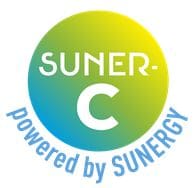
ICIQ is a consortium partner of the SUNER-C project which aims to create an European ecosystem to strengthen and accelerate innovation in the solar fuels and chemicals sector
The SUNER-C workshop, “Towards an Innovation Ecosystem for Solar Fuels and Chemicals in Europe,” gathered over 75 industry experts, EU policymakers and academic researchers at the Science Park of Ghent University.
This two-day event, held on July 2-3, addressed the integration and advancement of solar fuels and chemicals, through stakeholder pitches, breakout working sessions, policy presentations and a visit to the ArcelorMittal Steelanol plant, one of the highlights of the workshop. Participants witnessed firsthand the integration of innovative technologies in industrial settings. This site visit underscored the practical applications and potential of sustainable fuels and chemicals in driving sustainable industrial processes. Have a look at the visit video summary:
During the stakeholder pitches, 15 actors from academia and industry showcased their research or sector innovations. It included presentations by Babette Pettersen from LanzaTech, Pau Farràs from University of Galway, Christoph Falter from Synhelion, Janne Wallenius from SolarFoods, Marc Borghans from ING, Han Huynh and Laurent Baraton from ENGIE, Eline van Berlo from SkyNRG, Esther Santos from Apria Systems, Joost Smits from Shell, Ludo Diels from VITO, Max Fleischer from Siemens Energy, as well as Fredericq Peigneux form Heidelberg Materials.
Breakout sessions facilitated discussions on financial de-risking, business model development and centralized vs decentralized applications. A policy session followed featuring contributions from Philippe Schild from the European Commission’s DG RTD, – who covered R&I strategy and priorities on solar-to-X -, and Algreit Dume from DG GROW, on the transition pathways for the European chemical industry.
The event also included an interview with Sophie Loots from Energy Cooperative ZuidtrAnt, who provided insights about the ‘H2 Coop Storage Project.’ Additionally, MyLeaf a photovoltaic water electrolysis system brought from Leiden University, demonstrated standalone solar water splitting at the outside of the event building.
Over this two-day event, participants had the opportunity to consider the challenges and opportunities that come with the perspective of re-evaluating the way that our societies produce and consume the chemicals and fuels needed for its functioning. From the visionary presentations which explored what our distant future could look like, to a visit of a pilot plant that gives us a glimpse of that future and through the down-to earth considerations explored in breakout sessions, this workshop gathered a wide diversity of stakeholders and is already furthering discussions on how to enact a just and sustainable transition away from fossil fuels as energy sources.

